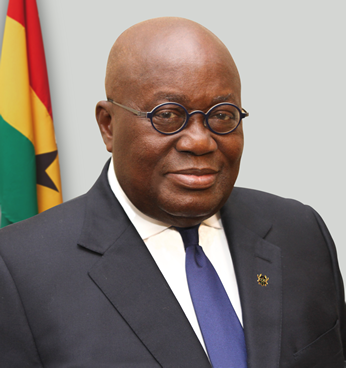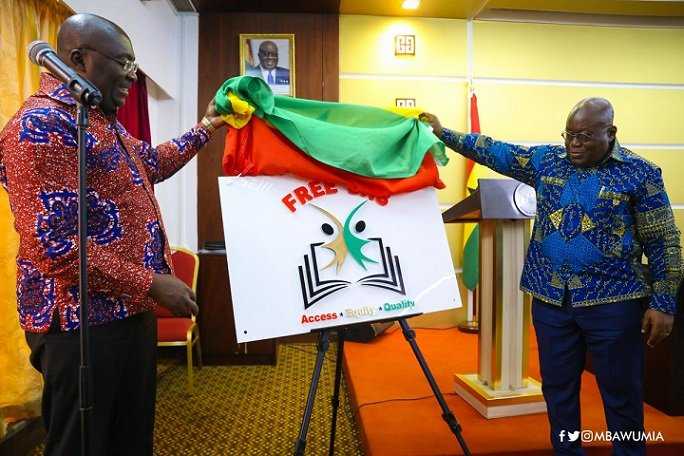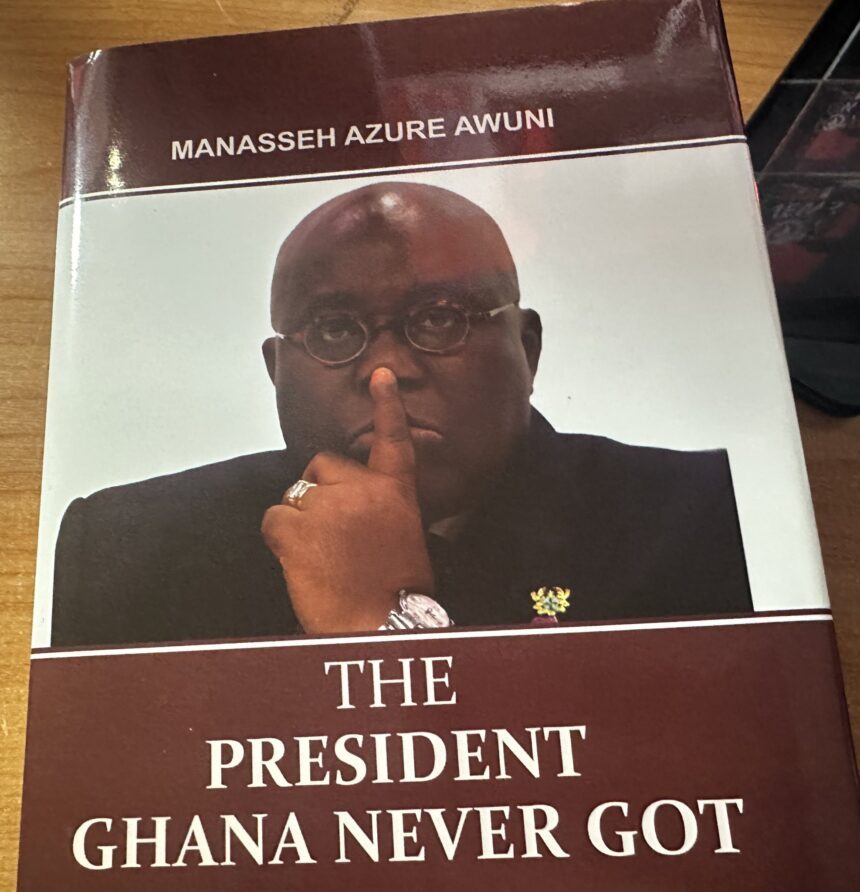We are reviewing a book that has sparked heated conversations across Ghana and rightfully so if you ask me. We are reviewing Manasseh Azure Awuni’s The President Ghana Never Got. Interesting title first of all, speaks volumes.
Allow me to ask this question: Are you content with the current government and its performance? Are you happy with Ghana’s current direction currently? Do you think that the promises made by our leaders have been fulfilled? I urge you to stay tuned as we find answers to these questions together using this book as our guide.
Manasseh’s book takes a hard look at the leadership of President Nana Addo Dankwa Akufo-Addo and the NPP. Don’t get me wrong, the book focuses on many aspects of Ghanaian leadership but the key interest here is how our current president made us believe he was the solution. The book exposes the failures, the broken promises, and the corruption that have left many Ghanaians disillusioned. But it doesn’t stop there. It also shows us what true leadership could look like, if only we demanded it.

This isn’t just a story about one man’s opinion. It’s a story about us, our struggles, our hopes, and the kind of future we want for Ghana. Therefore, I indulge you to make this analysis with me. What went wrong under His Excellency Nana Addo’s government? What lessons can we learn? And most importantly, how can we ensure Ghana doesn’t continue down this path? Let’s break it all down.”
“Why is this book so important? It’s important because it compels us to confront uncomfortable truths about our leadership and governance.
Think back to 2016. President Nana Addo’s campaign was filled with hope and bold promises. ‘Ghana Beyond Aid.’ It was a vision of self-reliance—a Ghana that could stand on its own two feet. People believed in it. And why wouldn’t they? After years of struggling with corruption and inefficiency, Ghanaians were desperate for change.
Fast forward to today. What do we see? Corruption scandals, a struggling economy, and a government that seems to care more about itself than serving the needs of the people.
Manasseh’s book cuts straight to the heart of these issues. He talks about how the promises of transformation have been overshadowed by nepotism and cronyism. How the government’s failure to address corruption has eroded public trust.
But this isn’t just about politics. This is about our everyday lives. When leadership fails, it’s the ordinary Ghanaian who pays the price. It’s the farmer who can’t afford fertilizer. It’s the teacher who works in a crumbling classroom. It’s the nurse who struggles to care for patients in an underfunded hospital.
This is why the book matters. It reminds us that leadership isn’t just about being in power or holding office—it’s about making life better for the people you serve.”
“Let’s take a walk down memory lane. When President Nana Addo took office in January 2017, there was an overwhelming sense of optimism. His campaign promises were ambitious: fighting corruption, improving education, and building a stronger economy.
One of his key promises was the Free SHS program. And to be fair, it’s one of the few initiatives his government has successfully implemented. But even that hasn’t been without its challenges. Overcrowded classrooms, lack of resources, and delays in funding have raised questions about how well the program is being managed.

Then there was the pledge to tackle corruption. Nana Addo famously said he would protect the public purse. But under his administration, we’ve seen scandals like PDS—where over 100 million dollars was lost in a questionable power concession deal.
And let’s not forget the COVID-19 funds. While countries around the world were using these funds to strengthen their healthcare systems, reports of mismanagement and inflated contracts surfaced here in Ghana.
Manasseh’s book doesn’t shy away from these issues. He meticulously documents the failures and missteps that have defined this administration. And he asks a critical question: If these are the leaders we have now, what does that say about the kind of leadership we’re willing to accept?”
Comparing Previous Governments
“Now, let’s compare Nana Addo’s government to previous administrations.
Take President elect, John Mahama, for instance. His government faced its fair share of criticism, but one thing you can’t deny is the visible infrastructural development during his tenure. Roads, hospitals, and schools were being built across the country.
Even ex-president Jerry John Rawlings, rest his soul with his controversial leadership style, left a legacy of discipline and accountability. People may not have agreed with all his methods, but they respected his commitment to Ghana’s progress.
Manasseh’s book forces us to ask: How does Nana Addo’s legacy compare? Yes, Free SHS is a significant achievement, but is that enough? When you weigh it against the corruption scandals, the economic mismanagement, and the unfulfilled promises, does it balance out?
The book paints a picture of a leader who started with so much promise but fell short of delivering the transformative leadership Ghana desperately needs. It’s a tough pill to swallow, but it’s a reality we can’t ignore.”
Recommendations By Azure
The book I must say is a powerful catalyst for change, a wake-up call to look and think beyond partisan politics and demand accountability, while also calling out corruption.
First, let’s talk about corruption. Manasseh doesn’t just point fingers; he explains how corruption affects every aspect of our lives. When government officials siphon funds meant for infrastructure, roads remain unpaved. When money meant for healthcare disappears, patients die in hospitals that lack basic equipment.
But here’s the real danger: corruption isn’t just about money. It’s about trust. When citizens lose faith in their leaders, it creates a culture of apathy. People stop voting. They stop holding leaders accountable. And when that happens, democracy itself is at risk.
Manasseh also warns about the dangers of tribalism and cronyism. He highlights how political appointments are often based on loyalty rather than competence. This isn’t just inefficient—it’s dangerous. It means decisions that affect millions of Ghanaians are being made by people who may not be qualified for the job.
But the book doesn’t just warn us—it educates us on what good leadership looks like. Manasseh talks about the qualities of a great leader: someone with integrity, vision, and a genuine commitment to serving the people. He tells us that leadership isn’t about power—it’s about purpose. It’s about making life better for the people who put their trust in you.
And here’s the thing: The president Ghana Never Got isn’t just a hypothetical figure. That leader could be out there right now. It could be the next person we elect. But it’s up to us to demand better.”
Conclude
“So, what’s the takeaway from all this? The President Ghana Never Got isn’t just a critique of Nana Addo’s government. It’s a call to action.
It challenges us to reflect on the kind of leadership we want for Ghana. Do we want leaders who make empty promises? Or do we want leaders who deliver real, lasting change?
Manasseh’s book reminds us that the future of Ghana isn’t just in the hands of our leaders—it’s in our hands. It’s in the way we vote, the way we hold leaders accountable, and the way we demand transparency and integrity.
So, I leave you with this: What kind of Ghana do you want to see? And what are you willing to do to make it happen?
Thank you for watching. Let’s demand better. Let’s choose better. And let’s work together to build a Ghana we can all be proud of.” This is still the newsgod, let’s continue the conversation in the comment section.















